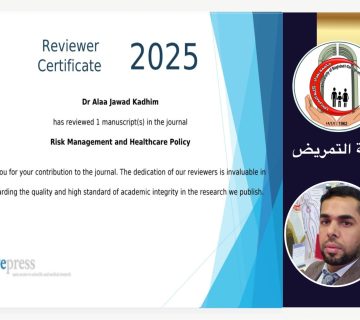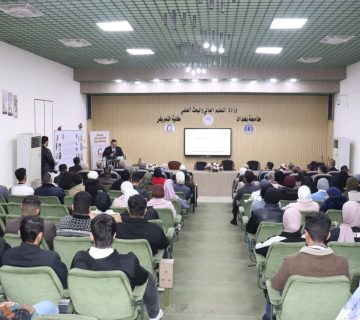The College of Nursing at the University of Baghdad discussed a master’s thesis entitled “Alcohol Use Behavior Among Substance Users: A Study Based on the Multistage Model of Change” by researcher Qatar Al-Nada Taha Haider, supervised by Dr. Karim Rashk Sajit, in the faculty’s main hall.
The study aimed primarily to understand the factors that can predict the willingness of individuals who abuse alcohol to stop this behavior. These factors included the age of the participants, the duration of addiction, the type of alcohol consumed, as well as psychological factors such as decision balance, self-efficacy, and change processes.
One of the most notable findings of the thesis was the existence of positive and statistically significant relationships between the age of the participants and each of the following: decision balance, temptations, self-efficacy, and change processes. The study also revealed a statistically significant inverse relationship between the stages of change and temptations.
The study recommended strengthening the role of psychiatric nurses through collaboration with various community organizations. This collaboration aims to raise public awareness about the negative effects of alcohol addiction through active participation in awareness and education campaigns that support prevention and early intervention.
These recommendations are directly aligned with the Sustainable Development Goals, specifically Goal 3: “Good Health and Well-being.” By focusing on alcohol abuse prevention and providing support to affected individuals, society can contribute to improving public health and promoting mental and physical well-being, which will positively reflect on building a healthier and more stable society.










